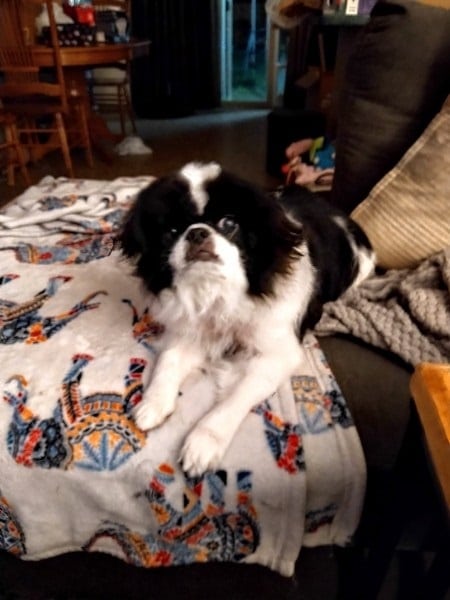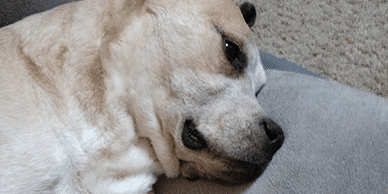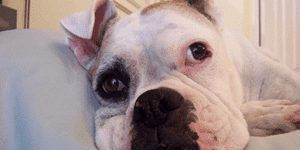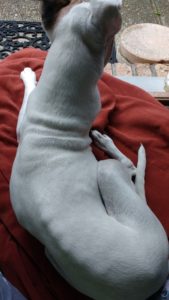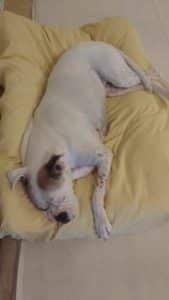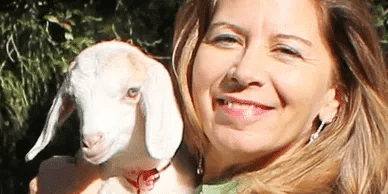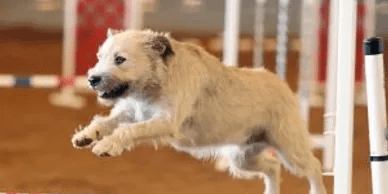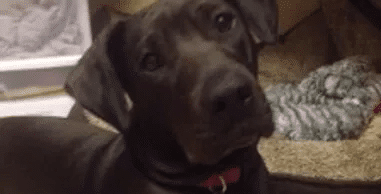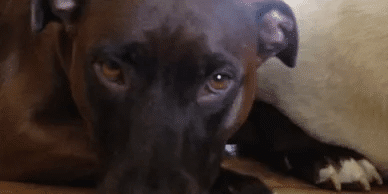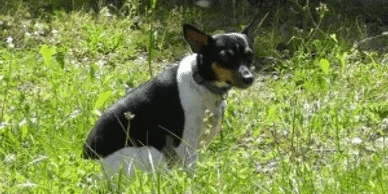

I LOVE living in Hawaii. There are so many things I love about living on the Big Island, it’s hard to decide which wonderful thing to write about next. Today, I’m going to write about something I love that also makes me sad. Today, I’m going to write about wild pigs.
I was working in the front yard today (because gardening is a pleasure here) when the dogs started barking like crazy. They were barking at a multi-generational family of wild pigs that were trotting down the road.
I’m gonna estimate that there were at least a dozen pigs, but there were too many to count for sure because they were milling about in confusion—trying to decide whether to keep moving forward or retreat the way they’d come—by the time I noticed them. Big pigs, medium-sized pigs, little pigs, all solid black, all trotting down the road together when my dogs’ barking interrupted their evening stroll. A family unit traveling in unison through a loose network of densely forested vacant lots that connect this neighborhood to the ocean.
My dogs ran along our front fence line, yelling “Keep on coming, we dare you.”
The pigs had no way of knowing that this was an empty threat.
I pulled off my garden gloves and dug my phone out of my back pocket, hoping to take a picture of the pig family. But my fumbles and my dogs’ incessant barking conspired to foil my attempts. My calls of, “Hey piggies, that’s okay, we won’t bother you,” didn’t reassure them. By the time I got my phone’s camera ready to snap a quick shot, the pigs were a distant dark line of humped hips and curly tails disappearing down our gray gravel road.
I wished I could offer those pigs a buffet of the extra fruits our trees produce without angering our neighbors who don’t have fences and don’t welcome the wild pigs to dig up their gardens.
I know that wild pigs can be a problem. Given free reign, they will dig up crops and cause incredible damage to pastureland and other eco-sensitive areas. They’ll kill dogs that are stupid enough to chase them, and they’ll injure grazing animals who get too close to a blade of grass they’d planned on eating.
But I still feel bad that the pigs don’t feel welcome in the neighborhood that was theirs before it was ours. They are being squeezed out of their habitat because of human encroachment. These pigs aren’t native to Hawaii, but even that isn’t their fault. European settlers brought them here, and the humans who already lived here quickly incorporated pork into their diet. Pigs were a blessing until they became a curse, and they became a curse because of us.
In my opinion, we humans are all culpable in creating the pigs’ plight, and we should do something to help them thrive in a way that doesn’t harm the environment. (Same with all the other species of wildlife that we’re pushing out of existence.)
But what can we do to reverse the damage we’ve caused? Is there anything we can do to help the wild pigs and other wildlife we’ve displaced? On an ever-shrinking planet, shouldn’t we humans take responsibility and fix the problems we created?
Because pigs are people too, and all you have to do to understand that is to watch a multi-generational family of pigs trot down the road together, confused and worried about whether they will be able to find enough food to eat and a safe place to bed down for the night, so they can rest before beginning another day that is likely to be even more constricted than the one before.
Maybe we can’t help them—or the coyotes, foxes, bobcats, raccoons, and others that are being pushed out on the mainland—but can we accept their right to exist, at the very least? Perhaps we can understand that these animals we’d rather forget about are sentient beings who have families they love, friends they care about, and communities they depend on, just like us.
Maybe we can accept that they have relationships and form emotional bonds. Just like us.
Maybe we can even imagine that they have goals and dreams and missions in life. Just like us.
When I saw that family of feral pigs trotting down the road, I was impressed by their solidarity.
- They take care of each other.
- They follow their wise leader in search of safety and sustenance.
- They teach their babies how to survive and thrive in an uncertain world.
- They are, in more ways than we can count, just like us.
- They are, in many ways, better than us.
I try to write uplifting articles that celebrate the many ways in which animals enrich our lives. But sometimes, we need to consider not just how other beings help us, but how we can help them.
I don’t know the answer. But maybe you do? I hope that someone does. And I hope you’ll share any ideas you may have about how we can coexist and enhance the lives of the animals with whom share this planet. Because if any of us suffer, we all suffer.
If any of us thrive, shouldn’t we all thrive? If one species prospers while another withers, our lives are diminished. We all live together, or we all die together. It’s our choice. The animals with whom we share the earth are all along for the ride. But we’re in the driver’s seat. It’s up to us to keep our fellow passengers safe.
So, what do we plan to do? More specifically, what can I do? What can you do? What can each of us do? The answer for each of us can be as big or as small as we make it. But we must do our part.
I don’t know what my part is just yet, but I know that I have an obligation to figure it out. Maybe you don’t know your part either. But I hope that we can figure it out together. Because we need the animals with whom we share the planet, and they need us too.
We’re all in this vehicle together. I just hope we’re not determined to drive it over the cliff.

